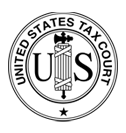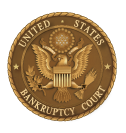WHAT IS THE BANKRUPTCY PROCESS?
Filing bankruptcy is an important decision. Bankruptcy is designed to give you a fresh start by eliminating overwhelming, harmful debt so you can begin anew financially.
All in all, the process usually takes around three months from beginning to end. Your first step is to schedule a free consultation with one of our attorneys. If you can, bring along your financial information and bills for our attorney to review. Eventually, in order to file your case, we will need a complete list of your assets and debts.
During your consultation, your attorney will discuss exemptions that will allow you to keep equity in your home, cars, retirement accounts and other items.
Then, once we have all your documentation, your case is signed, and your costs and fees are paid, we file your case. A meeting with the United States Trustee is scheduled about 30 days after filing. These meetings are currently being held in our Eastgate office by telephone. You and your attorney will to meet together with the trustee. The meeting typically takes 10 -15 minutes.
Although a good majority do, not every one qualifies for a Chapter 7. Whether you qualify is based on your income, family size, debts and other financial information. If you do not qualify for a Chapter 7 case you may file a Chapter 13 bankruptcy which is a repayment plan that protects wages and assets from attachment and interest from accruing while completing the plan. A Chapter 13 may be necessary to save a house or car from repossession. A Chapter 13 case can be converted to a Chapter 7 in many circumstances. We are with you throughout the process to modify your case as necessary over the months or years as your circumstances change.
In a Chapter 13 case, clients pay a percentage of unsecured debts. Depending upon your situation, the amount repaid can be as low as 1%. We will need your income for the last six months to formally evaluate whether you should do a Chapter 7 or Chapter 13 case.
Our office does not charge for the initial consultation. Your attorney will quote you a flat rate after evaluating your case. The more detailed income and debt information you provide at the initial consultation, the better we can properly advise you of your legal rights. Call 513-752-3900 to schedule an appointment at either our Eastgate or Middletown locations.







